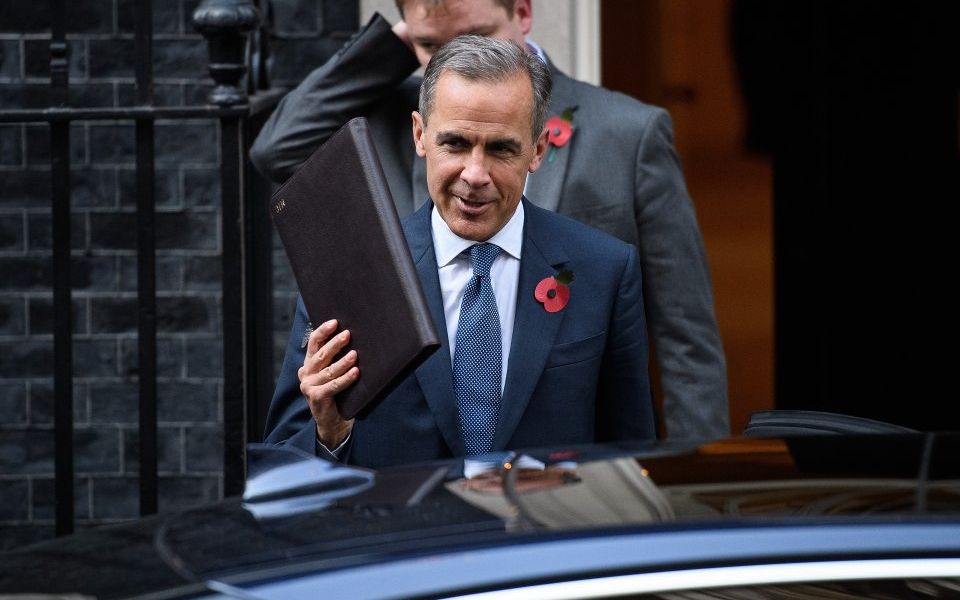
Why we don’t expect a UK interest rate rise until November

Forecasts for UK interest rates have moved significantly.
The Bank of England, which ordered an increase from 0.25 per cent to 0.50 per cent in November, has signalled that it is ready to raise rates faster than previously thought.
The Bank’s closely watched quarterly Inflation Report, published last month, pointed to the prospect of excessive economic demand emerging by 2020, raising concerns about inflation.
But rather than the detail of what was said, it was perhaps the choice of words that were more significant.
Monetary policy, the report said, would need to be tightened “somewhat earlier and by a somewhat greater extent over the forecast period".
The Bank’s hawkish communication spurred money markets to quickly bring forward expectations of the next rate rise to May.
We take a different view.
A November rate rise?
We don’t expect the first increase to happen until November, as this is consistent with previous market expectations, upon which the Bank had based its comments. Beyond that, we expect another two rises next year, taking the bank rate to 1.25 per cent by the end of 2019.
- Do rising interest rates reduce returns on income investments?
- How rising interest rates have affected returns from bonds
Why is our forecast for the first rise later than that of the market?
Firstly, we don’t believe the Bank expected its comments to shift expectations so far. If it does hike as early as May, then markets will quickly price in a rate rise every six months. That would mark a huge increase from the previous guidance that rate rises would be “gradual and limited”.
Secondly, many investors appear to have ignored the ending of the Term Funding Scheme in February.
The scheme, which provided below market cost liquidity to banks in order to encourage additional lending to the public, is estimated by the Bank to have been worth about a 0.25 per cent rate cut. It may already be having an impact on saving and lending rates.
Finally, it is worth remembering that the Bank assumes a smooth path to Brexit with regards to the impact on firms and households.
Given the small working majority the government has in the House of Commons, and the obvious divergence of views with regards to whether the UK should remain in the single market and/or customs union, a smooth path to Brexit seems like the least likely outcome.
For more on the outlook for world economies and interest rates:
Important Information: The views and opinions contained herein are those of Azad Zangana, Senior European Economist and Strategist, and may not necessarily represent views expressed or reflected in other Schroders communications, strategies or funds. The sectors and securities shown above are for illustrative purposes only and are not to be considered a recommendation to buy or sell. This communication is marketing material.
This material is intended to be for information purposes only and is not intended as promotional material in any respect. The material is not intended as an offer or solicitation for the purchase or sale of any financial instrument. The material is not intended to provide and should not be relied on for accounting, legal or tax advice, or investment recommendations. Reliance should not be placed on the views and information in this document when taking individual investment and/or strategic decisions. Past performance is not a guide to future performance and may not be repeated. The value of investments and the income from them may go down as well as up and investors may not get back the amounts originally invested. All investments involve risks including the risk of possible loss of principal. Information herein is believed to be reliable but Schroders does not warrant its completeness or accuracy. Reliance should not be placed on the views and information in this document when taking individual investment and/or strategic decisions. The opinions in this document include some forecasted views. We believe we are basing our expectations and beliefs on reasonable assumptions within the bounds of what we currently know. However, there is no guarantee than any forecasts or opinions will be realised. These views and opinions may change. Issued by Schroder Investment Management Limited, 31 Gresham Street, London EC2V 7QA. Registration No. 1893220 England. Authorised and regulated by the Financial Conduct Authority.
City A.M.'s opinion pages are a place for thought-provoking views and debate. These views are not necessarily shared by City A.M.
